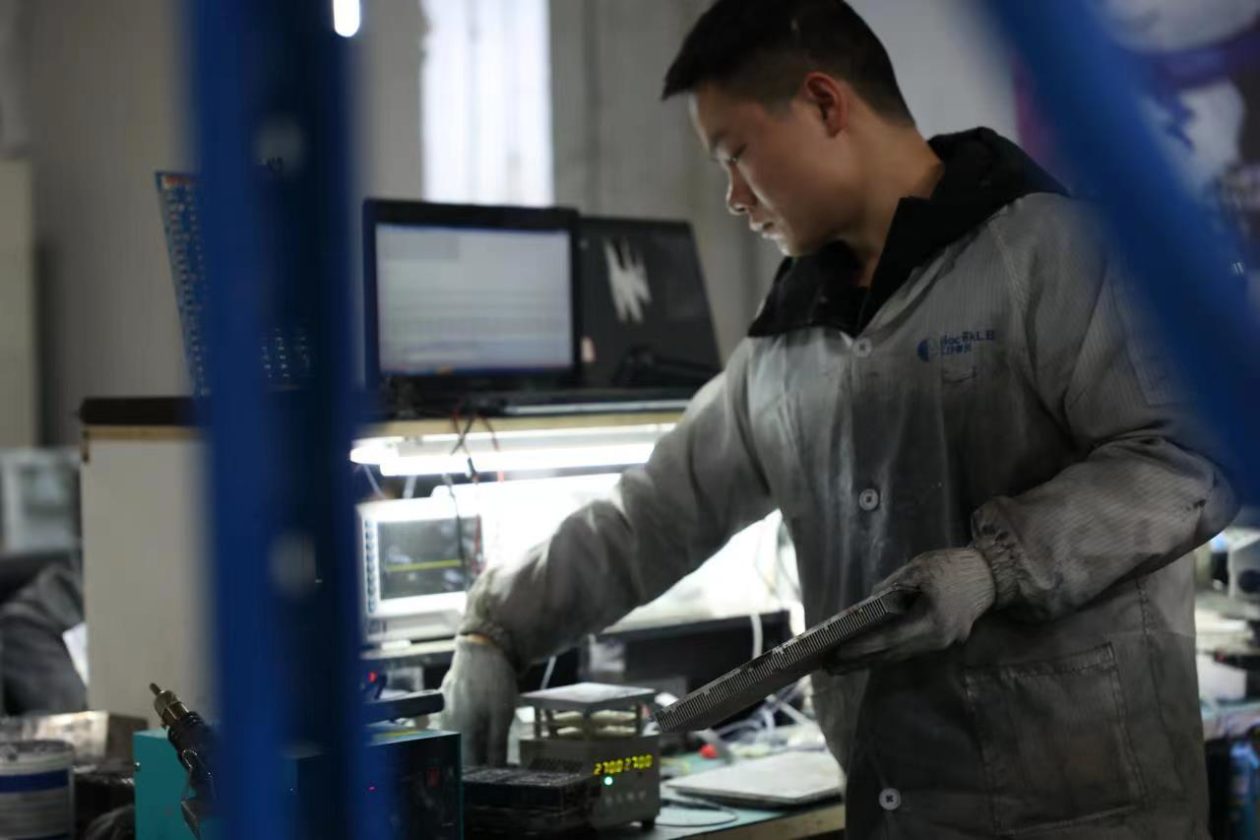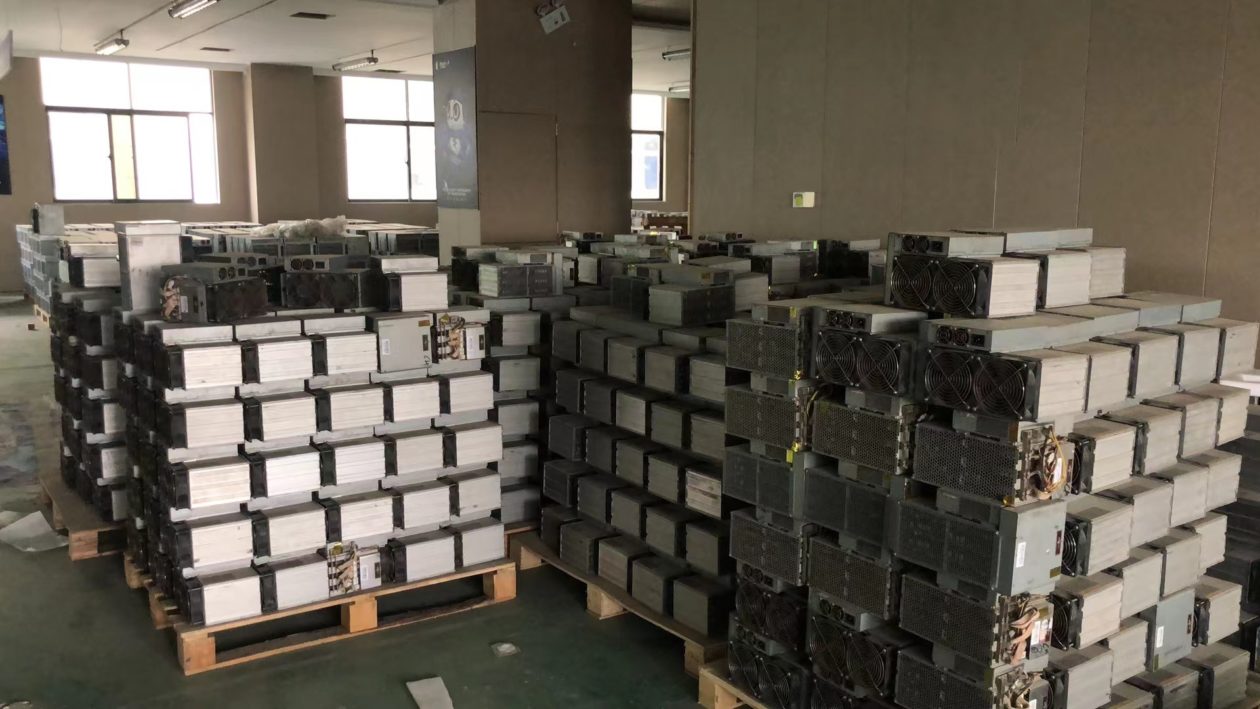Table of Contents
[ad_1]
Beijing’s choice to ban cryptocurrency mining in September last 12 months looked to be the conclude for an sector the place China led the environment. Not so, it seems, as organizations running the electrical power-hungry computers applied in mining are obtaining approaches to evade the authorities.
“I nonetheless have around 20 mining machines scattered in 5 rural locations across China,” just one Chinese crypto miner advised Forkast in a Telegram call. He asked for to use the pseudonym Lee to focus on his routines and declined to disclose the place of his functions.
Lee reported he started off mining in 2017 and later on set up a Bitcoin mining organization with a few partners, but when China cracked down very last year, they moved the company’s equipment to the U.S. and Canada. Even so, he kept his own products and operates it in rural places to keep away from the authorities.
Bitcoin “mining” is a metaphor for the use of networks of desktops to validate transactions on the blockchain, for which miners receive Bitcoin. Beside revenue from the mining by itself, the market generates other sizeable earnings streams, these kinds of as gross sales of the significant-end computer systems used, acknowledged as rigs.
Meta-Luban, the most significant Bitcoin mining rig maintenance organization in China, “sold about US$1.5 billion truly worth of rigs final 12 months, and strategies to offer yet another $1 billion this year,” mentioned Meta-Luban CEO Mark Zhou in an interview. The organization lists annual profits of US$2 billion on its web page.
Zhou instructed Forkast that all-around 80% of his clientele are from China but like Lee they are typically wanting to move their corporation devices to North The usa, Central Asia and Africa.
Hash tracks
Nonetheless, other evidence details to Bitcoin mining continuing in China. The so-referred to as Bitcoin “hashrate” is a evaluate of the computational energy being made use of by the network and can normally be recognized geographically.
China’s Bitcoin hashrate share plummeted right after the crypto crackdowns very first started in Could 2021, but it surged right up once more in September, suggesting “significant underground mining activity has formed in the nation,” in accordance to the Cambridge Centre for Different Finance (CCAF).
In January this calendar year, China controlled 21.1% of the world-wide Bitcoin hashrate, to become the next-premier Bitcoin producer, trailing only 37.8% in the U.S., the CCAF said.

The People’s Financial institution of China is one vocal opponent to cryptocurrencies, arguing that they produce financial instability and aid economical criminal offense. Other commentators have reported the central bank is much more nervous about crypto encouraging capital flight from China and posing a danger to ideas to launch a digital currency of its have that it will regulate.
One more argument against the miners is the computer systems they use eat great amounts of electricity and as this is created generally by fossil fuels in China, it undermines the country’s carbon neutrality aims. Miners have pushed again that they usually use surplus energy created by renewable electrical power sources.
Chinese authorities have taken many methods to establish and bust concealed mining functions. They have appeared at strange electrical energy use and computer IP addresses associated with mining pools to find mining farms.
Cat and mouse
But these kinds of actions have their limitations.
“When the ban 1st came out, I was very nervous,” Lee claimed. “But following discussing with some other industry gamers, I decided to go my machines out from significant mining farms,” he stated, including that it took him much less than a thirty day period to settle his rigs in new places in rural areas.
“One way for us personal miners to continue mining in the dark is to locate properties in rural spots and place only a few rigs in a one home to hold the energy usage in a specific assortment,” Lee explained. “It’s just like property-mining.”
To keep beneath the government’s radar, Lee mentioned he takes advantage of digital non-public networks, a signifies to preserve his rigs linked to the net, whilst obscuring his location from the authorities.
Lee explained some miners nonetheless run in factories, these as metallic processors, and acquire too much electrical power intake from the vegetation. “Many equipment are even now in operation, mostly in Southwest and Northwest China,” he included.
“Of course I however have fears, but it is really unlikely for all my rigs to get busted,” Lee said.

Gustavo A. De La Torre, an functions and internet marketing supervisor at Bitcoin mining pool BTC.com, explained to Forkast that he’s “happy to see Chinese miners continue to flourishing beneath a governmental ban.”
De La Torre mentioned that BTC.com does not need consumers to post know-your-client information and facts, offering accessibility to miners regardless of their geographical position.
An formal at an abroad Bitcoin mining company, who declined to be recognized to talk about the scenario in China, informed Forkast that they continue to perform with Chinese miners.
“The ban is circumvented via many procedures by both the miner and the mining pool,” the official reported. “Some of these procedures consist of transport layer protection from miner to pool. Some others incorporate non-public proxies with encryption engineering made by the mining pool enhancement groups.
“It’s a cat-and-mouse video game. When anything is observed to be no longer handy they go on and update it or change it,” the official reported, incorporating that mining bans just really do not do the job as “many would chance doable prosecution to keep on confirming transactions, creating blocks and securing the network for the reward of Bitcoin.”
Heading offshore
Although some crypto mining functions have long gone underground in China, several other corporations are relocating their devices overseas.
Mark Zhou, the head of Meta-Luban, claimed he has about 100 engineers at repair centers in Southwest China’s Sichuan province and the southeastern metropolis of Shenzhen, and they cope with about 20,000 mining rigs a thirty day period. But most of the products is destined for other countries, he reported.
“The Chinese mining projects we know, which include ourselves, are mining overseas,” Zhou mentioned.

Zhou said miners relocating to North The us want new greater-finish machines, while these going to Central Asian nations these kinds of as Uzbekistan and Kazakhstan would want second-hand rigs.
Buying and selling favors
Bitcoin miner Lee stated China’s small business practice of guanxi (the culture of investing favors and leveraging relationships) performs a portion when it will come to area governments busting mining initiatives.
“My to start with reaction when I realized about the ban was that this would all be about actively playing ‘guanxi,’” Lee stated. “Whoever has improved ‘guanxi’ or stronger networks could stay.”
Lee mentioned that ahead of the mining ban kicked in, lots of community governments worked with miners to make more revenue that would go into federal government coffers.
In November, Xiao Yi, a former provincial-stage official in the southeastern province of Jiangxi, was eradicated from place of work and expelled from the Communist Get together after he was accused of abusing his ability to aid crypto mining activities.
In March, the country’s anti-graft watchdog warned that authorities are retaining a near eye on possible corruption driving underground crypto mining. It noted that some public servants use state methods to mine crypto.
Chinese regulators are inclined to 1st just take a “one-measurement-fits-all approach” when they rein in an emerging sector, and subsequently make changes to take it easy certain procedures, Lee mentioned.
“Generally I’m not as pessimistic about the outlook of the business as how the media have depicted,” Lee added. “It’s difficult to ban all operators.”
[ad_2]
Source url







